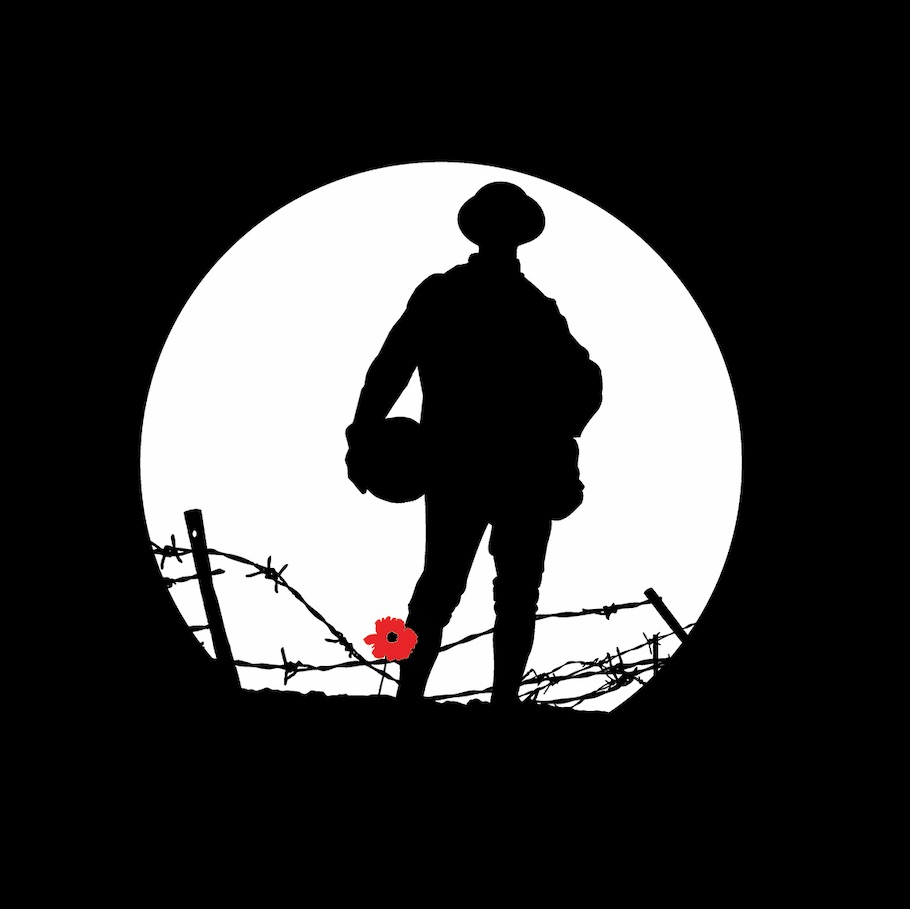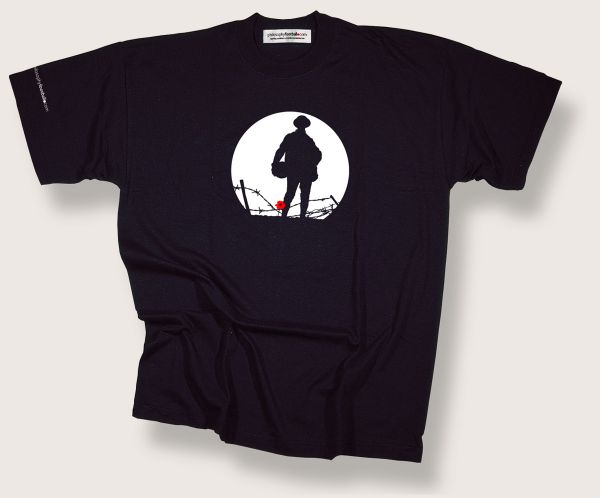
Remembrance yes, but what are we remembering?
11.11.22
Philosophy Football's Mark Perryman untangles the poppy from the political undergrowth

Premier League footballers this weekend, as they have for several years now, will be sporting a poppy embroidered into their kits. Up and down the divisions, if they haven't done so already, clubs will precede kick off with a scrupulously well-observed minute's silence.
But what precisely is being remembered here? Unlike the Second World War, the First World War's causes and effects have largely been lost in the mists of history. Even the most diligent regime of revision by those preparing for their GCSE History might struggle to come up with a reasonable explanation. The Blackadder version of class division in the trenches coupled with an awkward mix of the extremes of superhuman courage and senseless sacrifice fits awkwardly with official versions that cannot bear to admit the latter half of the origins of the poppy myth.
When Philosophy Football commissioned the renowned illustrator Dan Murrell to come up with an image to combine these varied contradictions Dan didn't disappoint. The silhouette of those countless hundreds of thousands who in death became a single unknown soldier, place and date unspecified. The football in his hands to symbolise what he'd rather be doing away from the front. The poppy represents not today's far off commemorations but the bloody carnage to come in a matter of days, if nor hours. And of course, famously on Christmas Day 1914 soldiers from both sides did just that, the 'football truce' a brief but hugely symbolic episode of rank-and-file resistance to the juggernaut of war which left 22 million dead. He'd rather be playing football but all his mates who would play in his team will soon be dead at Loos, Vimy Ridge, the Somme, Passchendaele, and for what?
The Christmas Truce game took place on the Western Front, Pont Rouge. Christmas Eve 1914 German troops had decorated their frontline with Christmas trees and candles. They sang Stille Nacht a tune and carol most of the British troops knew too, as Silent Night. Astonished, they applauded and then joined in with songs of their own. Christmas Day, dawned, the guns are silent. A German NCO advances across No Man's Land carrying a Christmas Tree towards the British lines. A British soldier goes to meet him, soon others join him, gifts are exchanged. A football is produced. Caps and helmets for goals. The match ends 3-2 to the Germans.
By lunchtime on Christmas Day the guns had fallen silent on two-thirds of the British sector. More games were played before hostilities recommenced. The fact that football was the means of connection amidst such conflict is the perfect illustration of its centrality to working-class life in Britain, and to a lesser extent mainland Europe, by the early 20th century.
Two and a half years later a very different expression of football's centrality to early twentieth century class culture was at the Battle of the Somme, 1 July 1916, when Captain Nevill of the East Surreys offered a prize for the first platoon to kick a football up to the enemy trenches.
"On through the hail of slaughter,
Where gallant comrades fall,
Where blood is poured like water,
They drive the trickling ball.
The fear of death before them,
Is but an empty name;
True to the land that bore them,
The Surreys played the game."
This was the way at the time a poet writing under the pseudonym 'Touchstone' described for the Daily Mail the 420,000 losses the British Army suffered. A game? Even the most committed militarist might struggle to comprehend this particular emotional response. But such was the iron will at the time of those who backed the war, no questions asked, no answers given.
All of this sits rather awkwardly with the twenty-first century status of the poppy. A remembrance that provides little space for why such a war was fought, to what ends. The words of the war poets, most famously Wilfred Owen, almost entirely absent from institutionalised memorialising.
" Sit on the bed. I'm blind and three parts shell.
Be careful; I can't shake hands now; never shall.
Both arms have mutinied against me, - brutes.
My fingers fidget like ten idle brats."
Written while Owen served on the frontline with The Manchester Regiment, published posthumously following him being killed in action November 1918.
Of course, remembrance is tinged with the mournful. The minute’s silence an incredibly powerful statement of this, whether as a crowd of thousands in silent unison before a football match, or the quietness of solitary observation of the eleventh hour, on the eleventh day, of the eleventh month. Those who pour scorn on such emotions do themselves no favours. But neither do those who embrace the moment to divorce themselves from all critical faculties. The Christmas Truce, the verses versus the war, the dashed hopes of those who returned home to look forward toi a society fit for heroes and fond anything but. If we cannot provide the space for such faultlines in memories past then what precisely is the good of that poppy we’re wearing?
Further Reading Douglas Newton The Darkest Days : The Truth Behind Britain’s Rush to War 1914
 The Philosophy Football 1914-18 Remembrance Collection from here
The Philosophy Football 1914-18 Remembrance Collection from here
Mark Perryman is the co-founder of Philosophy Football